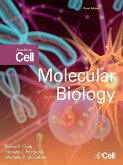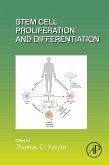Molecular Biology, Second Edition, introduces the basic concepts of molecular biology while incorporating primary literature from today's leading researchers. This new edition reflects the massive surge in our understanding of the molecular foundations of genetics, thanks to major scientific revolutions in genetics and computer technology. It explains how living organisms function at a molecular level and how DNA, RNA, and proteins interact to provide the cell with genetic information. This volume goes far beyond the flowing text, annotation, and hyperlinking available in most ebooks. Unique features include interactive quizzes for enhanced student understanding and self-testing; narrated animations to clarify complex content; and study guides equipped with 62 full-text Cell Press journal articles, all in one downloadable package. Also new to this second edition are updated chapters on genomics and systems biology, proteomics, bacterial genetics, and molecular evolution and RNA. A fully revised art completes the updates made in this ebook. This book will be of interest to undergraduate students taking a course in Molecular Biology, as well as upper-level students studying Cell Biology, Microbiology, Genetics, Biology, Pharmacology, Biotechnology, Biochemistry and Agriculture. - Winner of a 2013 Texty Award from the Text and Academic Authors Association - Includes interactive elements for enhanced student understanding and self-testing; animations to clarify complex content; and study guides equipped with full-text Cell Press journal articles - New to second edition: updated chapters on genomics and systems biology; proteomics; bacterial genetics; and molecular evolution and RNA - Fully revised art
Dieser Download kann aus rechtlichen Gründen nur mit Rechnungsadresse in A, B, BG, CY, CZ, D, DK, EW, E, FIN, F, GR, HR, H, IRL, I, LT, L, LR, M, NL, PL, P, R, S, SLO, SK ausgeliefert werden.









